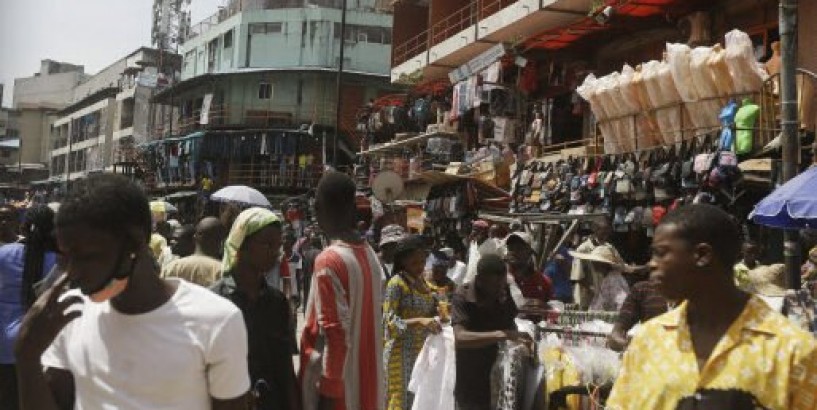Coupled with an oil price slump , Nigeria has found itself unable to fund its budget. While the majority of Nigerian jobs are domiciled in the informal and agricultural sectors, the majority of its income is from oil revenues.
READ MORE Coronavirus: Nigeria goes home for funds out of fear on COVID-19 impact
The plans of the Federal Government of Nigeria (FG) to restart the country’s economy is uncertain. The Central Bank of Nigeria’s economic package has been tagged as “too tiny to matter” by policy experts, but even worse, there seems to be conflicting ideas held by government agencies in charge of fiscal and monetary policy.
Plans to restart the economy Common sense and economists around the world agree that cutting taxes and other expansionary fiscal policies would be the best way for the government to stimulate a contracted economy. The Nigerian economy has many fundamental problems, and it is feared that the interventions announced by the CBN do nothing to allay fears , particularly with regards to the naira. But there are a few wins, like restructuring of loans around oil and gas and manufacturing.
READ MORE Nigeria VS Coronavirus: Cutting naira’s umbilical dependence on oil
One of the best things fiscal and monetary policy makers can do is to ensure a coherent set of policies that provide clear signals and guidance to businesses and investors.
“On the fiscal side, the FG spent 99.2% of Q1 2020 revenues on debt servicing , underscoring the bleak state of fiscal finances. As evidence from the latest NBS [National Bureau of Stastistics] report on the impact of COVID-19 suggests that businesses and households are enduring hard times, the FG’s tax drive should be flexible and not worsen their problems,” Adedayo Bakare, a Lagos-based economist tells The Africa Report .
READ MORE Coronavirus: Nigeria’s Access Bank announces salary cuts to curb job loss
When the lockdown was announced, the Nigerian tax body encouraged businesses to pay their taxes early and even went as far as a funny statement and tweets about how “unpatriotic” telcos were if they didn’t pay taxes because this was the time the government needed the money. The government, through the Federal Inland Revenue service , doubled down on taxation then and now, because the fiscal situation of the country was and is still bad.
“Nigeria is really broke” “ Nigeria is really broke , but COVID-19 exposed it and made it slightly worse . The dip in demand for oil led to cargoes remaining unsold leading to little to no oil revenue. Because of the impact on FAAC [Federal Account Allocation Committee], the government has started pushing for other underdeveloped sources of revenue,” says Oluwaseun Oyajumo, an investment and venture analyst.
The government has since been playing around with the idea to tax internet companies . The country already introduced a stamp duty on digital payments with its new tax bill.
READ MORE Coronavirus: Delay of AfCFTA is more bad news for Nigeria
“On the monetary side, the policies have created more confusion than clarity, with the CBN tightening liquidity but punishing banks for not lending in a risky economic environment by seizing deposits to the tune of their lending shortfall,” Bakare explains.
To tackle an already shrinking economy, the CBN wants banks to increase their lending . But at the same time, it brought forward a contradictory policy expecting banks to keep a hold of 27.5% of its deposits as reserves. Put together, the two policies make an unsustainable wreck.
What is likely to happen Experts argue that Nigeria is caught between a rock and a hard place by being shortsighted in their policy choices. The country blocked rice and other food imports, increasing food inflation , while also flooding the market with cash by reducing access to the bond market.
READ MORE Coronavirus: Food insecurity fallout from Nigeria’s lockdown
“Inflation is likely to rise because of currency depreciation , higher energy prices and food supply issues, not necessarily because of government spending as the size is negligible at less than 10% of GDP,” says Bakare.
He concludes: “The FG is borrowing aggressively and not saving, which has put its debt sustainability at risk. As a result, there is little scope for government-led investment but private sector-led investment could be compelling under the right framework.”
Bottom line: If the FG implements and sticks to fiscal reforms that rein in frivolous spending, such as on subsidies, and boosts the provision of social services with policies to encourage businesses to invest, create jobs and grow, government reform might move from a macro basis to affecting the household and individuals. However, there is no timeline, this will only happen when the government is ready to make the important decisions.









